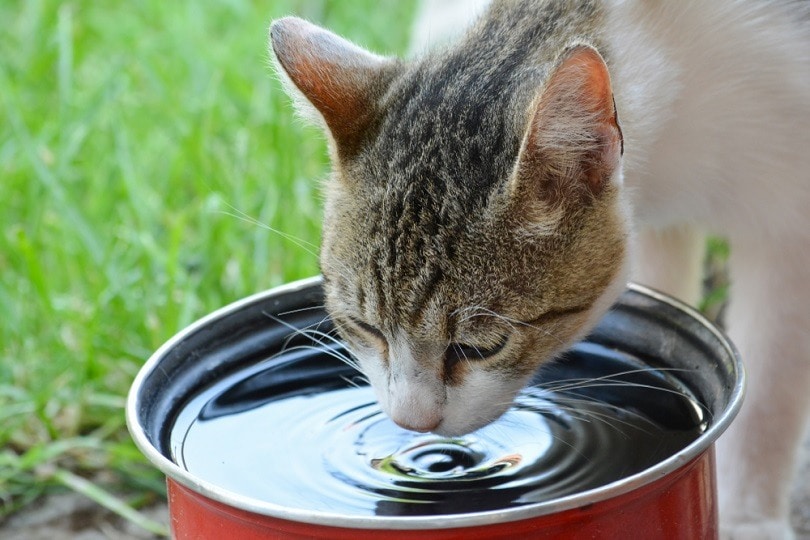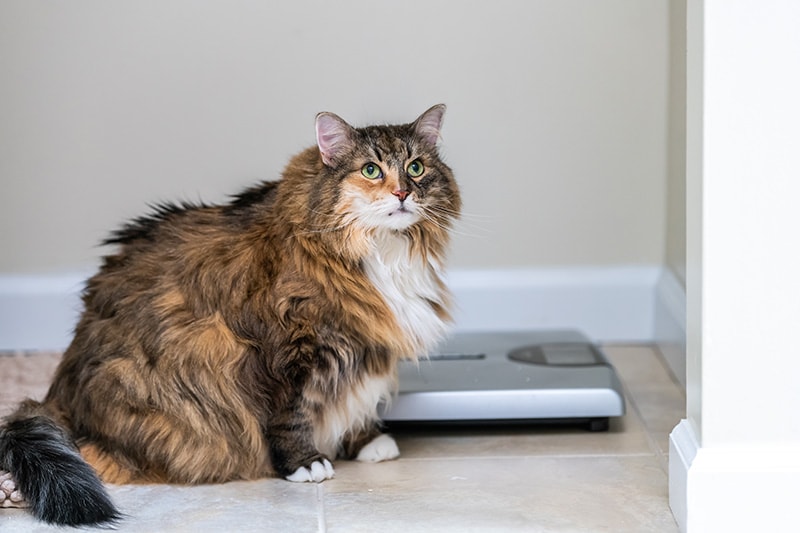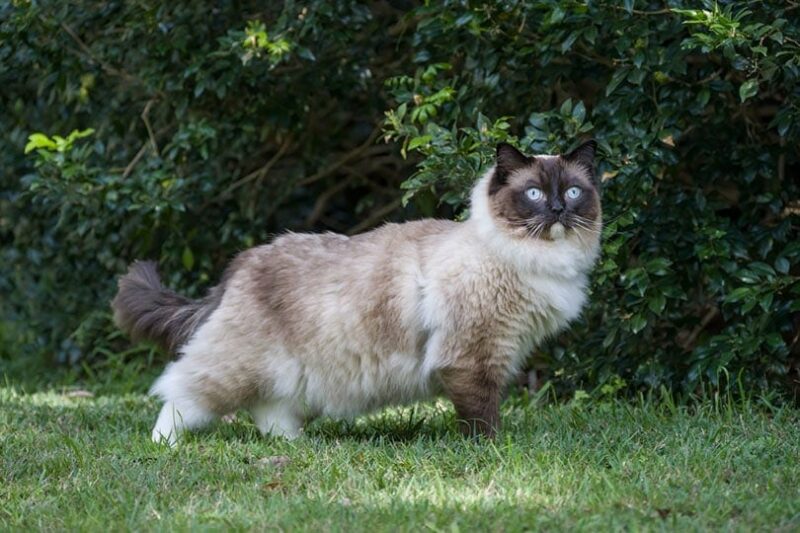VET APPROVED

The information is current and up-to-date in accordance with the latest veterinarian research.
Learn more »Click to Skip Ahead
Many cat owners struggle to get their kitties to consume the recommended daily amount of water. Generally, cats should drink about 3.5-4.5 ounces of water per 5 pounds of body weight. While it’s often the case that cats don’t drink enough water, what does it mean if you’re noticing just the opposite? If your cat is suddenly drinking a lot of water, here are eight possible reasons why.

The 8 Reasons Why Your Cat Might Be Drinking So Much Water
1. Food Change
| Need to call the vet?: | Usually not |
| Possible solutions: | Another diet change |
If you’ve recently changed your cat’s diet and suddenly notice them drinking more water, the food shift could be to blame. You’re more likely to notice it if your cat previously ate wet food and you change to a dry diet. Wet food contains up to 80% moisture, and your cat doesn’t need to drink as much while eating it.
The ingredients and nutritional makeup of a new food may also cause your cat to drink more water. For example, a new formula that contains more salt may increase your cat’s thirst. If you and your vet rule out other causes of increased drinking, you may need to switch to a different diet if your cat’s system can’t adjust.
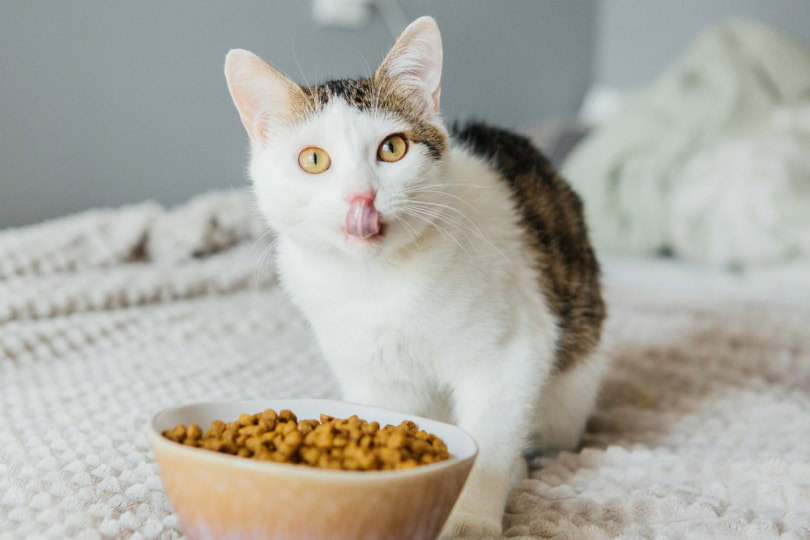
2. Heat
| Need to call the vet?: | Not usually unless heat stroke is suspected |
| Possible solutions: | Fans, cooler weather |
Like dogs, cats may drink more when the weather is hotter. Hot weather may cause your cat to lose more fluids than usual, often by grooming as they try to cool off using evaporation. Because of that, you’ll notice them drinking more to compensate for those losses.
Although this problem usually resolves in a cooler environment, be alert to the possible signs of heat stroke, which can be life-threatening and require immediate medical attention. Vomiting, weakness, confusion, trouble breathing, red or pale gums, and seizures are all potential signs of heat stroke. Get your cat to the nearest veterinarian immediately if you suspect this condition.
3. Stress
| Need to call the vet?: | Usually |
| Possible solutions: | Household adjustments, medications, pheromone diffusers |
Behavioral issues such as stress and anxiety can also cause your cat to drink more water, but it is less common. Because there are several causes of excessive thirst, your vet will likely want to rule out other conditions before concluding your cat is dealing with stress or anxiety.
If you notice other signs of stress, such as overgrooming, aggression, or inappropriate urination, it may make the diagnosis easier, so be sure to inform your vet.
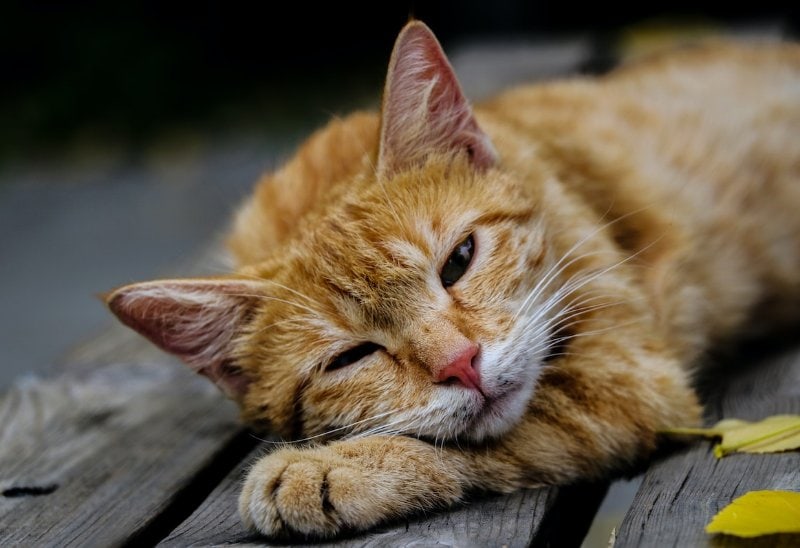
4. Dehydration
| Need to call the vet?: | Yes |
| Possible solutions: | Hospitalization, medications |
Your cat may be drinking more water because they are dehydrated or behind in their fluid consumption. There are many possible causes of dehydration, one of which we already discussed: hot weather. Another common cause is fluid loss from vomiting or diarrhea.
Other medical conditions can also cause your cat to become dehydrated. Dehydration can quickly become serious if not treated, so contact a veterinarian, especially if your cat is experiencing fluid loss.
5. Kidney Disease
| Need to call the vet?: | Yes |
| Possible solutions: | Diet changes, medication, supplemental fluids, regular blood work checks |
Kidney disease is one of the most common medical conditions that cause increased drinking and more frequent peeing in cats. They are among the earliest signs of kidney disease, and it’s one of the first issues your vet will likely be looking to rule out.
Blood tests can help your vet check how well your cat’s kidneys function. Other signs of kidney disease include vomiting, weight loss, and decreased appetite. Chronic kidney disease is incurable but can be managed with the help of diet changes, medications, and your veterinarian to help slow progression.
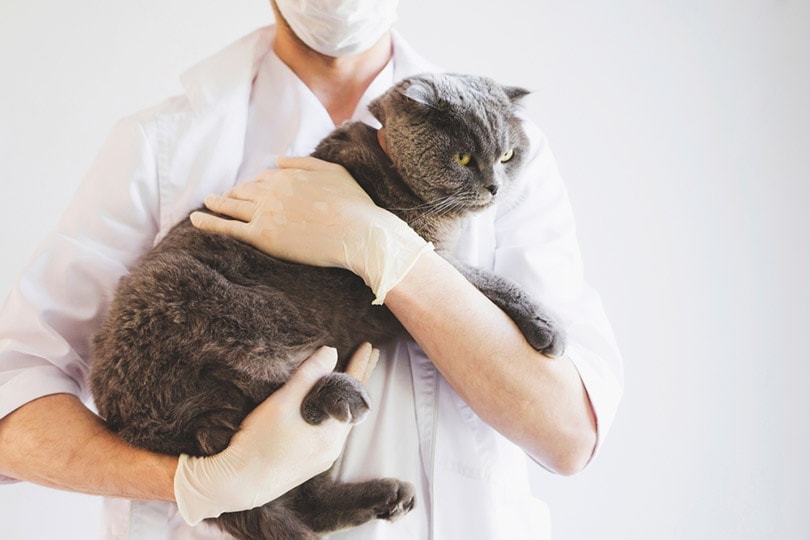
6. Diabetes
| Need to call the vet?: | Yes |
| Possible solutions: | Diet change, medication, blood sugar checks |
Another of the most common medical causes of increased drinking is diabetes, a condition in which the cat’s blood sugar levels get too high. The extra sugar spills over into the urine, taking excess water with it. To keep up with the water loss, your cat drinks and pees more often.
Overweight cats are at higher risk of developing diabetes. Like kidney disease, diabetes must be managed long-term with the help of your veterinarian. Without treatment, diabetic cats can develop life-threatening complications.
7. Hormone Disease
| Need to call the vet?: | Yes |
| Possible solutions: | Medications |
Several diseases caused by hormone imbalances can trigger your cat to drink more water. In these diseases, the cat’s kidneys can’t properly absorb water because they don’t respond appropriately to a specific hormone that controls the process. The extra water is wasted as urine, leading to a fluid imbalance and increased thirst. These diseases can be tricky to manage, and your vet may recommend you see a specialist to assist.
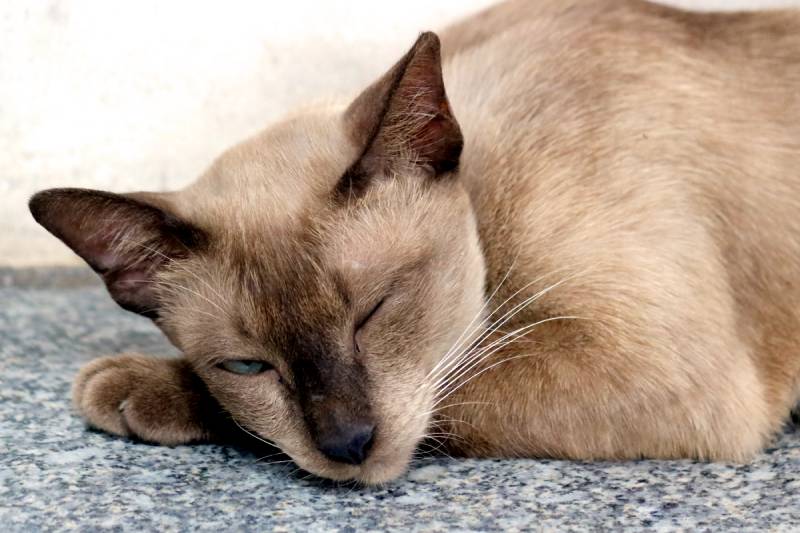
8. Hyperthyroidism
| Need to call the vet?: | Yes |
| Possible solutions: | Medications |
Hyperthyroidism, or overproduction of thyroid hormone, is another possible cause of increased drinking. This condition is common in older cats. It is diagnosed with a blood test and generally requires lifelong medication or a special diet to control, but surgery or radio-iodine treatment may be offered.
Along with increased drinking, other signs you may notice include weight loss, increased appetite, fast heart rate, and hyperactive behavior such as pacing and vocalizing at night. Hyperthyroidism can lead to heart damage, among other side effects, if it’s not treated.

What to Do When Your Cat Is Drinking a Lot
As we’ve learned, when your cat starts drinking a lot of water, there could be many reasons, some of which are severe medical conditions. Regardless of the cause, you’ll need to schedule a visit with your veterinarian. Before your appointment, pay special attention to how much your cat is drinking and try to measure it out so you can report accurate numbers to your vet.
Your vet will perform a physical exam on your cat and ask questions about any signs you notice. Many of the medical conditions we discussed require blood tests to diagnose, so you can expect your vet to recommend them. Other possibilities include X-rays or urine tests.
If the diagnostic tests rule out medical conditions, your vet will look for other causes, such as diet or stress. Should a medical condition such as kidney disease or diabetes be diagnosed, the diagnosis may seem overwhelming or scary. Don’t be afraid to share your concerns with your veterinarian. They are there to help guide and support you.
If you’re nervous about giving your cat medications or injections to treat diabetes, ask your veterinarian’s staff to teach you all their tips and tricks. Treating chronic medical conditions can be a chore, but many cat owners soon get the hang of it.


Conclusion
While your cat’s excessive water drinking may not seem like a big deal, it could be an early warning sign of serious health concerns. It’s not necessarily time to assume the worst, but it’s not something you should ignore either. If your cat has one of the medical conditions we discussed, your best course of action is to catch it early when the treatment is less complicated.
Featured Image Credit: AleksandarMilutinovic, Shutterstock
